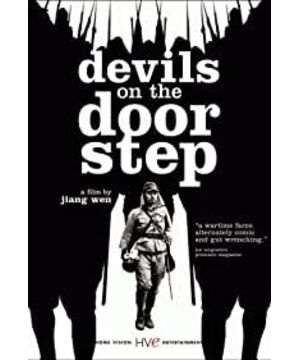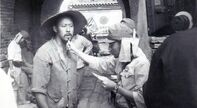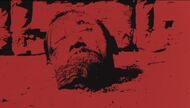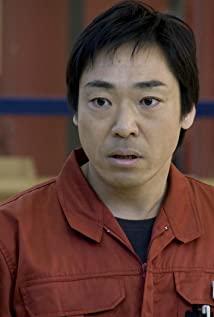I was looking forward to seeing "Jiang Wen", and sure enough, there were many surprises. (And most of them are shots banned by the Radio, Film and Television Bureau) At least it is the most novel film I have seen so far that reflects the period of the Anti-Japanese War. When it comes to novelty, it should be a new angle. Although the deeds of those anti-Japanese heroes cannot be denied and they do exist, the Chinese government must not obliterate the ideas of some or most ordinary people. Maybe when we watch Warring States movies, we tend to get excited, and we often grit our teeth and say that if we were an anti-Japanese hero at that time, we would also be an intelligence officer. But no one can say that you are not the next Ma Dasan in that situation, when you have never been out of that village, when you have always lived in that comfortable paradise. I just live comfortably, and I don't have the ideological awareness to say what I want to do for China, unless it is a village deeply influenced by the Eighth Route Army.
Looking at the step-by-step numbness, dementia and laughing behavior of "Three", I can't help but say that the author's excavation of human nature is so profound, of course Jiang Wen's performance is indeed true. Somewhere even when mocked by the Japanese, we were unconsciously infected. Laughed! And laughing for a moment will feel how sad it is. When a group of "Ma San" cast lots in order to carry out the "killing devils" operation, they couldn't help but feel that this scene seemed familiar. Yes, that's the Chinese tyranny - yong. Maybe somewhere you'll instantly see yourself snickering happily over there, but luckily it wasn't me.
In fact, for most people, whether they are Japanese or Chinese, those soldiers, those people, no one knows the cause and result of the war. Just blindly influenced, Hanaya Kozaburo, who was arrested at first, cursed the villagers desperately and demanded suicide, but when death really came, everything was revealed nakedly: I am not a samurai, I am just a peasant, what he Damn Japanese military emperor, what swears allegiance to his death is just purely influenced or deceived, just following the trend. And this kind of thing often bursts its banks before life and death come. And the "traitor" that appears many times in the text. I don't want to be a "traitor", "traitor" is shameful and most reviled. What everyone knows is just the name "traitor". What is a "traitor"? When the villagers discussed the topic of "whether to exchange flower houses for food", they had already discussed the "traitor" thoroughly. In fact, everyone was not familiar with him. Under Masan's "justifiable explanation", everyone agreed. This kind of "good deed" or "the golden mean" or the "hedonism" of the peasant class just ruined his life.
Another scene that shocked me was the part where the Japanese army and the villagers reveled. The author portrayed the atmosphere at that time in a very subtle way. It seems to be on the verge of breaking out, and the tension in the air seems to become real in the next moment. And when the villager patted the Japanese officer's head and said don't be afraid, it all started. I think this scene's adaptation of the original is really "God". In fact, the point of this film is to exaggerate the mediocrity and numbness of the Chinese people, which may be too exaggerated or true, because I was not born in that era and cannot be considered elegant. But I believe that in most places in China, people will never have such a high level of ideological awareness. They will fight hard against the enemy. If you die, or I die, most people will still be like the characters in the teahouse. It can be avoided. That's true.
Just like when Ma Dasan brought the fish back to the village to distribute food, what he saw was a sea of fire. I believe he never thought of anything. An ordinary peasant, a mediocre commoner, just wants to live a steady life. For a moment, I don't know what he is thinking.
What really shocked him was that he was selling cigarettes at the gate of the Japanese prisoner's center. When he saw a few Japanese people, he picked up the guy and chopped it up. At this moment, I am clear that although his ideological awareness must not be high, he is at this moment. Those who hate the Japanese really hate the Japanese. This kind of hatred is also real, not for any country, not for any anti-Japanese. Just pure hatred. I don't know when I saw Masan frantically chasing the Japanese in the rain, I cried! ! !
For everything that happened around me, I finally knew, "Is that really the devil?!"
View more about Devils on the Doorstep reviews










